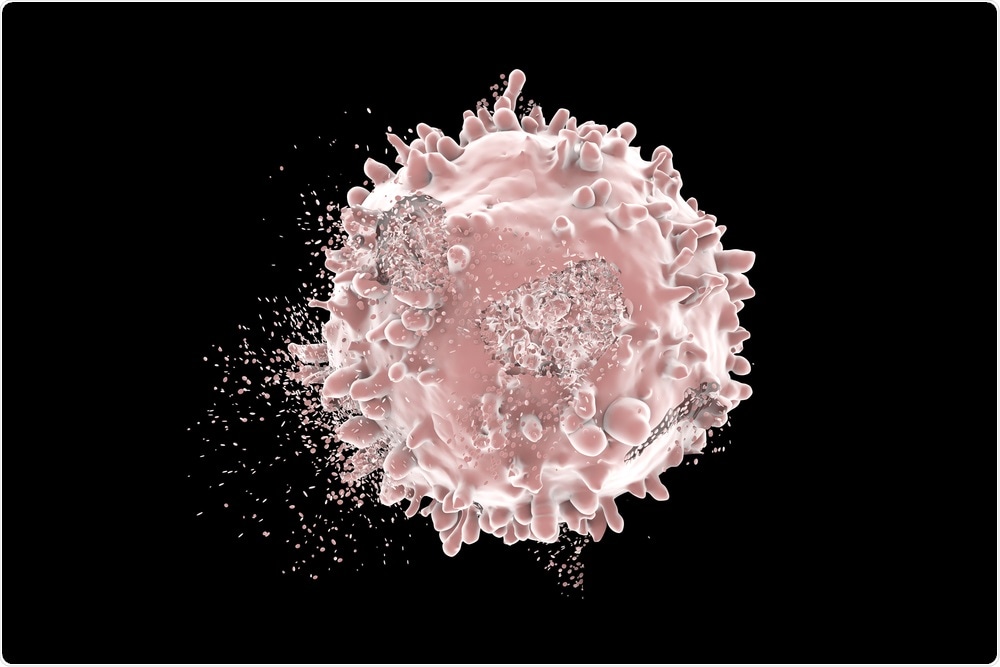Scientists working on targeted cancer therapies at the University of Bristol have found evidence of an exciting new pathway which could potentially be used to selectively kill cancer cells without harming other healthy cells.
 Image Credit: Kateryna Kon / Shutterstock
Image Credit: Kateryna Kon / Shutterstock
The mechanism involves the activation of certain protein-coding genes only in the presence of hypoxia, which is typically seen within the tumor microenvironment.
Hypoxia, or decreased oxygen tension in the body, is known to occur during the growth of a number of frequently occurring tumors.
It is the result of their fast growth which outstrips the existing blood supply to the tumor. This causes the available oxygen supply to fall.
Cancer cells, however, manage to compensate for hypoxia by activating other protein signaling pathways that they use to actually spur their growth and metastasis.
The study, which is entitled ‘Cancer cell adaptation to hypoxia involves a HIF-GPRC5A-YAP axis’ was led by Dr. Alexander Greenhough and was recently published in the journal EMBO Molecular Medicine.
They discovered that one of these proteins coded for a receptor known as GPCR5, which is part of the GPCR receptor family. These receptors form ideal drug targets in a number of conditions.
GPCR5 is part of a novel signaling mechanism which the scientists discovered could be specifically targeted to produce cancer cell death.
The team studied a variety of proteins whose expression was activated in cancer cells exposed to hypoxic conditions.
The use of genetic methods to prevent the switching on of the GPCR5 receptor in tumors exposed to falling oxygen levels was associated with the death of cancer cells, making the finding very promising.
Dr. Greenhough pointed out that hypoxia was a typical feature of cancerous and not healthy tissue, but researchers have always found it difficult to make clinical use of this characteristic until now.
This work advances our knowledge of hypoxic cancer cell behavior and take us a step closer towards developing novel therapies that could achieve this goal."
Dr. Greenhough, First Author
Further goals for the researchers following up on this study include examining the role of the GPCR5 receptor: does its presence show that the cancer is more aggressive, and therefore harder to treat successfully? Does it play a part in other disease processes which involve hypoxia, and could it be manipulated to enhance regeneration of the affected tissues in such medical conditions?
Source:
This article has been re-written from a press release, originally featured on EurekAlert.